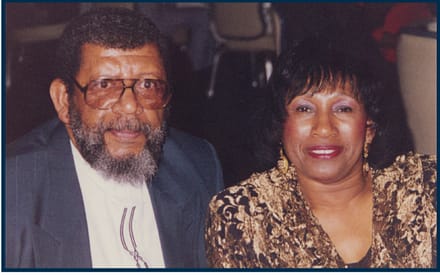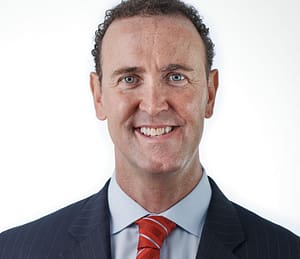 Honoring A Husband’s Memory
Honoring A Husband’s Memory
The appellant in Hewlett v. McDonald was Mrs. Cora Hewlett, the widow of veteran Norman L. Hewlett. The claim, dated April 2006, was for service connection for the cause of the veteran’s death. Pro Bono Program volunteer attorney Stephen Dunne twice won remands from the Court, with the most recent being in August 2014. Subsequent to this remand, Mr. Dunne obtained an independent medical opinion for the appellant furnished by The Veterans Consortium through our innovative pro bono Medical Review Pilot Project, using donations from our benefactors. On the basis of the medical opinion, the VA granted service connection for the cause of death and paid almost eight years of back-pay benefits.
When Stephen Dunne was assigned Mrs. Hewlett’s appeal, the VA had already denied his client benefits for 10 years, despite clear evidence that her husband was exposed to Agent Orange. “It was clear this had nothing to do with money,” Mr. Dunne recalls from his first conversations with Cora Hewlett. “She was fighting VA to preserve her husband’s memory and honor.” As a veteran, Norman Hewlett had always been proud of his service, but at the end of his life he was extremely disappointed by the VA’s denials that his painful liver cancer was service connected. His widow was furious at how he was treated near the end of his life, and Norman and Cora Hewlett determined to pursue his case as high as it could go to win justice for her husband. “…she is getting the justice she deserved after 10 long years…”
“I am a veteran myself,” Mr. Dunne says, “and I promised her we would try to honor Norman’s memory in her case.” One of the keys to success was a medical grant that would enable them to obtain a specialist’s opinion. “I did the research,” Mr. Dunne recalls, “and all the types of cancers were overwhelming. There were hundreds of specialists.” Eventually he tracked down a doctor in New Jersey who was willing to document the relationship between Mr. Hewlett’s time in Asia and his cancer. This opinion from a highly honored doctor tipped everything in the veteran’s favor. “I think without it, there’s not a chance we would have won this case,” Mr. Dunne says. At the time, he was also concerned because Cora Hewlett had pneumonia and may have been on her deathbed. “That was close to a year ago—thankfully she made a full recovery and finally she is getting the justice she deserved after 10 long years.
Mr. Dunne feels pro bono attorneys can learn from Mrs. Hewlett’s persistence. “You can win these cases but it’s not easy. It’s a long, hard-fought battle.” He urges volunteer attorneys to learn as much about the cases and the veterans’ conditions as possible. “We looked at VA studies on cancer and the association of different cancers with veterans serving in different parts of the world, and gave that information to the specialist.” Mr. Dunne also found it critical to explain to the doctor that the VA requires explicit language in order for an opinion to have persuasive value.
In June 2015, Mrs. Hewlett at last received two checks from the VA, one retroactive, the other is the first of an ongoing monthly benefit. “I’m glad it’s over,” she says, “and my attorney did a wonderful job. But nothing will make up for what VA did to my husband. I felt terrible about how he suffered… They had my husband not having been exposed to Agent Orange, so we had to prove all that. Then he died in 2006. And we’re now just getting things straightened out.”
“You can win these cases but it’s not easy. It’s a long, hard-fought battle.”
Mrs. Hewlett describes how Mr. Dunne and the Pro Bono Program treated her versus how the VA responded as being like night and day. “That program is a good program,” she says. “When I filed my last appeal I got about 12 to 15 letters from different attorneys. But I liked what I heard from this [Veterans Pro Bono] Program, and after talking with Mr. Dunne, I was happy he was my attorney.”
Mr. Dunne, who became a volunteer attorney after participating in a training session delivered by The Veterans Consortium in Delaware, says the importance of the Pro Bono Program cannot be overemphasized. “It’s amazing to see its success rate,” he says. “Pro se [i.e., unrepresented], veterans seem likely to fail. They cannot understand the complexity VA has put in front of them. Veterans can’t process it.” The Veterans Consortium Pro Bono Program’s volunteer attorneys, trained in the nuances of the law and the Court, thus become the deciding factor between losing and winning. In Mrs. Hewlett’s case, Mr. Dunne’s high-quality representation, and an effective medical opinion secured through The Veterans Consortium’s innovative pro bono Medical Review Pilot Project, made all the difference.



